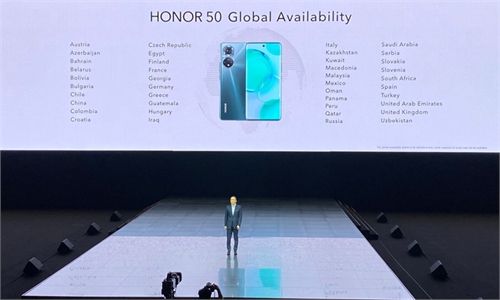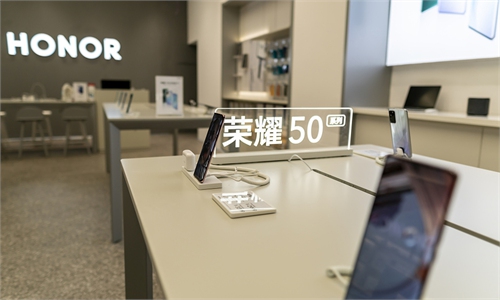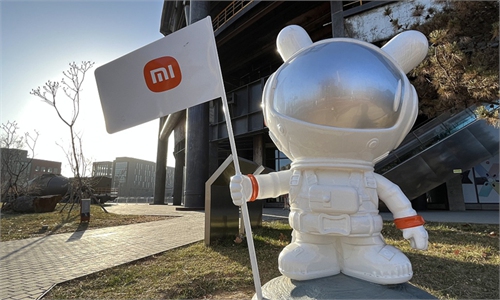Smartphone data anonymity no longer enough, says study

Justin Denison, senior vice president of mobile product development, shows off Samsung's first foldable smartphone model Infinity Flex Display during the Samsung Developer Conference. Photo: IC
Privacy measures that are meant to preserve the anonymity of smartphone users are no longer suitable for the digital age, a study suggested Tuesday.
Vast quantities of data are scooped up from smartphone apps by firms looking to develop products, conduct research, or target consumers with adverts.
In Europe and many other jurisdictions, companies are legally bound to make this data anonymous, often doing so by removing telltale details like names or phone numbers.
But the study in the Nature Communications journal says this is no longer enough to keep identities private.
The researchers say people can now be identified with just a few details of how they communicate through an app like WhatsApp. One of the paper's authors, Yves-Alexandre de Montjoye of Imperial College London, told AFP it was time to "reinvent what anonymization means."
His team took anonymized data from more than 40,000 mobile phone users, most of which was information from messaging apps and other "interaction" data.
They then "attacked" the data searching for patterns in those interactions, a technique that could be employed by malicious actors.
With just the direct contacts of the person included in the dataset, they found they could identify the person 15 percent of the time.
When further interactions between those primary contacts were included, they could identify 52 percent of people. "Our results provide evidence that disconnected and even re-pseudonymized interaction data remain identifiable even across long periods of time," wrote the researchers from the UK, Switzerland and Italy.
AFP



